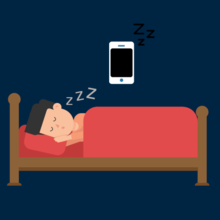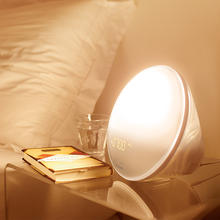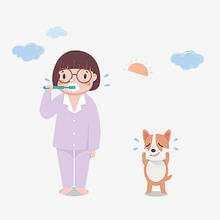Sleep is a resource we can all make for ourselves, and yet somehow many people nowadays are sleep deprived. In recent decades, studies show that the amount of sleep we get each night has decreased. One study found that since 1985 “the percentage of adults sleeping ≤ 6 hrs. increased by 31%”, and that on average every person gets 30 minutes less of sleep today, than they would have in 1985 [1].
This may not sound very significant, but how many times have you snoozed your alarm for that extra five minutes in the morning?
Sleep is particularly important to young people since it promotes learning and brain development. However, students often neglect sleep in favour of cram sessions and other late-night activities. The massive adoption of caffeine and technology in society, often magnify the effects of these bad habits; researchers have proven that both screens and coffee can extend the amount of time it takes to fall asleep.
The prevalence of technology and other stimuli in our day-to-day lives will probably only increase as time goes on, and so will the effects that they have on our sleep. Knowing this, what are some of the methods we can employ to sleep better at night?
Phones
 Phones have seen massive improvements in their capabilities in the past decade, and as a result, their use has been steadily increasing. Before-bed phone use can have a major impact on how well you sleep that night.
Phones have seen massive improvements in their capabilities in the past decade, and as a result, their use has been steadily increasing. Before-bed phone use can have a major impact on how well you sleep that night.
Certain wavelengths of blue light will stimulate the release of hormones that keep you awake and alert, which is why it is so hard to fall asleep right after using a screen.
The first tip we can give you is to stay off your phone in bed. Try to associate being in bed with being tired, and make an effort to stray away from using any screens a half hour before you want to sleep.
Alarms
Another role your phone probably fulfil is that of your morning alarm. For a lot of modern history people have used sound to wake themselves up punctually. Did you know that humans actually evolved to be awaken by light?
 It makes sense if you consider the fact that the sunrise used to be our cue to get up, and medical studies confirm that there is an acute increase in alertness hormones like cortisol when woken up with a high intensity light [2].
It makes sense if you consider the fact that the sunrise used to be our cue to get up, and medical studies confirm that there is an acute increase in alertness hormones like cortisol when woken up with a high intensity light [2].
Sudden sound alarms will rouse you and can leave you groggy, and uncoordinated for a while after you wake up. A growing number of people have decided to replace their old alarms with light-based alarms, or “artificial sunrises.”
These fancy light bulbs work to simulate the sun cresting over the horizon by gradually increasing in brightness, and by changing the colour of the emitted light. Users of these alarms have reported that they feel fully awake sooner after getting up than they did when they used sound alarms. This is likely due to the hormone response it triggers in its users, and as well as it being a gentler, and more drawn out alarm.
Routine
Although we may not like to think about it, our well-established routines dictate our lives, where you probably already have a bedtime routine that you follow consciously or otherwise.
Creating or changing your pre-sleep routine can be a major influence on how quickly you fall asleep. It is important to realize that your brain is always trying to predict what is coming next, and by conditioning your brain to think that sleep is coming next, you can make it fall asleep quicker.
A good place to begin is to make a list of all the things you normally do  before bed, like brushing teeth or preparing your bag for the morning.
before bed, like brushing teeth or preparing your bag for the morning.
By repeating the same actions in the same order every night before you lie down, you can fall asleep near instantly as you train your brain to shut off at that moment.
You should aim to spend the last 15-30 minutes before you want to go to sleep doing this routine, and definitely do not include any screens or intense blue/white lights to avoid over-stimulating your brain before you want it to be relaxed.
Conclusion
You don't need to try all these ideas at once, you can start small by getting off your phone before bed, or by starting to develop some good before bed habits. I hope that with these simple measures you can begin to take back some control over when and how you sleep. Happy slumber!
References
[1] E.S. Ford, T.J. Cunningham, J.B. Croft. "Trends in Self-Reported Sleep Duration among US Adults from 1985 to 2012." Sleep, Vol. 38 Is. 5, pp. 829-832, May 2015.
[2] R. Leproult, E.F. Colecchia, M. L'Hermite-Baleriaux, E.V. Cauter. "Transition from Fim to Bright Light in the Morning Induces an Immediate Elevation of Cortisol Levels" Journal of Clinical Endocrinology & Metabolism, vol. 86 Is. 1, pp. 151-157, Jan. 2001.




